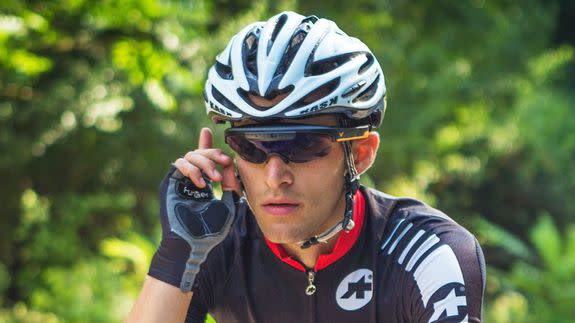These smart glasses for cyclists will make you feel like a fighter jet pilot

The augmented reality space may still be in its relative infancy, but AR smartphone apps like Pokémon Go and Snapchat are quickly taking the technology mainstream.
And while smartphones seem like the natural fit for AR now, some are hoping for something less smartphone-specific that you can wear on your face (think a smaller, less bulky HoloLens style device).
SEE ALSO: 2016 was supposed to be the year of VR. Instead, augmented reality ruled
On Wednesday, Everysight announced the development of the Raptor smart glasses, a device designed for cyclists that puts real-time data such as speed, distance, time, heart rate (when connected to a separate heart rate monitor) and even turn-by-turn navigation on a clear visor directly in the rider's line of sight.

Connected via Bluetooth to an associated app, the GPS-enabled glasses are meant to offer a better option over some smart glasses that place an eyepiece on the lens, potentially partially obstructing a rider's view. In addition to the app component (promised for both iOS and Android), the glasses also offer a side interface that can be operated using swipe gestures, allowing the cyclist to operate the glasses without stopping or taking his eyes off the road. The company says the Raptor will also offer handlebar and voice control interfaces to control its functions.

Image: everysight
However, the smart glasses aren't available to the public just yet; instead the company has opened up a pilot program (already in progress) for U.S.-based hardcore cyclists who bike at least 12 times a week.
"The goal of the program is to help shape the overall user experience for all riders," an Everysight spokesperson told Mashable. "So we’d like to get enough participants in the program to provide us with a good amount of feedback on the product." Although the pilot program ends later this month, they company is still accepting applications on its website.
No pricing has been announced for the final commercial version, but the company expects the device's battery to last at least six hours.
We have yet to test out the company's claims ourselves, so it remains to be seen just how well the device actually works versus Everysight's enticing claims. In the meantime, Everysight's video demo (above) offers hope that we're about to see a significant jump in AR-style wearables in the very near future.
